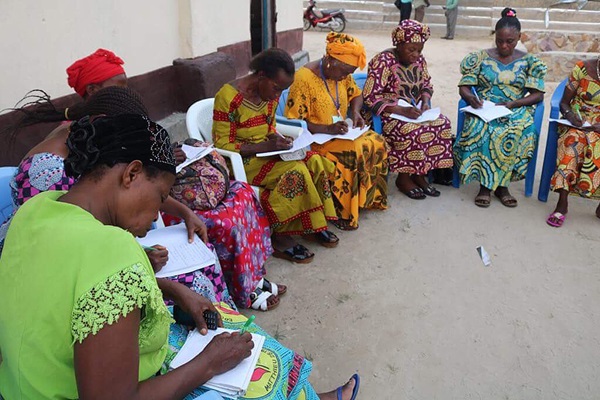Jesus said, “I came so that they could have life — indeed, so that they could live life to the fullest” (John 10:10, CEB). United Methodists value human life, from pregnancy and maternal care before we are born to our closing breaths.
God created all of us to thrive and be well. God’s vision for abundance creates conditions that allow all people to thrive and live out the fullness of their days. United Methodists want to help all people live into God’s vision of abundance.
Improving mental health for all through:
Valuing life includes valuing not just physical health, but mental health as well.
This is why United Methodists seek, financially support and advocate for the mental health of all of our neighbors, wherever we are.
As our Social Principles note, “The World Health Organization defines mental health as ‘a state of well-being in which the individual realizes his or her own abilities, can cope with the normal stresses of life, can work productively and fruitfully and is able to make a contribution to his or her community.’”
Valuing mental health in our congregations
Helping people realize their own abilities is part of what every nurturing congregation helps all its participants to do throughout their lives. Nursery workers, Sunday school class teachers, youth leaders, peer groups, spiritual gifts classes, and accountable discipleship groups are some of the ways congregations can “watch over one another in love” and “encourage one another to love and good works.” Those who care for children in church programming regularly watch out for and alert parents when their children are struggling to cope with stress so their parents can help them. Ministry teams of all ages help each other work together productively for the good of the community. And clergy and caring ministries of the local church can provide not only counsel but referral to other professionals and some financial support for persons who need that assistance to improve their mental health.
Learn more

United Methodists do all of this with, as the Social Principles also note, a particular attentiveness to avoid bringing stigma to persons struggling with serious challenges to their mental health. Some mental health challenges can at time result in behavior that can be frightening to the person and to others. Even so, United Methodists pledge “to foster policies that promote compassion, advocate for access to care and eradicate stigma within the church and in communities.”
These forms of basic care for mutual mental health are at the heart of the lives of every United Methodist congregation.
Supporting mental health for all
In many places, mental health care is hard to access, and persons with mental health challenges lack the resources or the time to access it because their illness makes stable and sufficient income a challenge. This is why United Methodists commit themselves to advocate for governments to provide wider access to community-based mental health services, and, when mental illness leads to a need for confinement for the protection of self and others, for mental health courts to supervise their process of care.
United Methodists also put their money where their advocacy is. Through the Abundant Health Grant program of the General Board of Global Ministries, United Methodists have directly supported creating a community-based counselor with teenagers in Clarksville, Texas, continue to underwrite addiction treatment ministries in Little Rock, Arkansas, and provide follow-up mental health treatment for patients in a hospital in Nepal.
Also in Nepal, and funded through the Advance, United Methodists underwrite room, board, counseling, medication, and skill development with women who have faced gender based violence so they can make a healthier new start independent of those who have abused them. And through a $5,000 annual grant to the Center for Victims of Torture, United Methodists support a ministry of care and healing with refugees and asylum seekers in the United States who have undergone torture in their own countries and are unlikely to access or have reason to distrust the mental health support systems that could help them.
Abundant life is always more than physical survival. Our call to value life moves United Methodists toward each other in local congregations in each other’s sustaining mental health and sends us into the world in ministries of compassion and justice to work to improve the conditions of all who suffer with mental illness.This content was produced by Ask The UMC, a ministry of United Methodist Communications.





